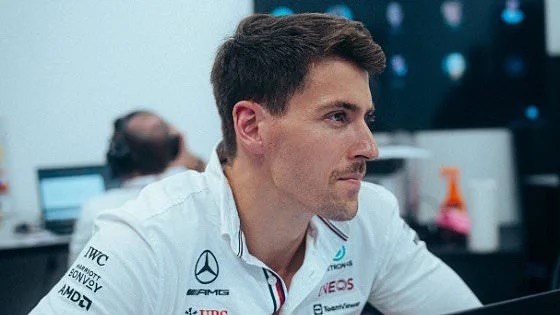
Man Utd’s Bold F1-Style Revolution: How Sir Jim Ratcliffe Plans to Transform Data Analysis at Old Trafford
Manchester United are on the cusp of a technological revolution, as co-owner Sir Jim Ratcliffe looks to deploy Formula 1 expertise to drag the club’s data analysis out of the ‘last century’. In a move that blends cutting-edge motorsport know-how with the beautiful game, United’s pursuit of Mercedes F1 performance engineer Michael Sansoni underscores their desire not just to catch up, but to leap ahead in football’s analytics arms race.
Ratcliffe, backed by his Ineos consortium, has been candid about the club’s data shortcomings, telling the United We Stand fanzine that “data analysis doesn’t really exist here.” This frank admission is striking, considering United’s immense profile and resources. Despite a gross spend of over £900 million since 2019, United’s expensive recruits – including the likes of Antony, Jadon Sancho, Donny van de Beek, and Rasmus Hojlund – have largely failed to deliver on their promise, shining a harsh light on the club’s recruitment inefficiencies.
By contrast, rivals such as Brighton and Brentford have consistently punched above their weight by harnessing sophisticated data approaches. United’s inability to convert financial muscle into success has not gone unnoticed. Ratcliffe is convinced that a new era of data-driven recruitment and performance analysis is crucial for restoring United to elite status.
The appointment of Michael Sansoni could be an important first step. Sansoni, a senior performance simulation engineer with Mercedes-AMG Petronas F1, is renowned for his role in preparing the championship-winning cars of George Russell and Kimi Antonelli. He describes his work as "a process of continual improvement," analysing real-world performance against sophisticated models and making constant refinements—a skill set United believe to be eminently transferable to football.
Advanced talks between United and Sansoni are reportedly well underway, aided by Ineos’s role as a one-third shareholder in Mercedes F1. Club insiders view the potential hire as a ‘move within the family’, and Mercedes are understood to be supportive. For Sansoni, shifting from the high-octane world of F1 to the drama of Old Trafford represents not just a career pivot but a fascinating experiment in cross-sport innovation.
Ratcliffe’s ambitions do not end with data analysis. In January, United recruited legendary decathlon coach Harry Marra to work on player speed, adopting methods more common in Olympic sport than traditional football. This, alongside the F1-inspired analytics upgrade, hints at a cultural shake-up unprecedented in club history.
Yet Ratcliffe’s own words also serve as a warning to supporters eager for quick fixes: "These things don't happen overnight." The determination to be “as good as anyone in the world” underscores United’s recognition that world-class recruitment and performance rely on more than just chequebook prowess—they demand a willingness to embrace new thinking.
As Manchester United prepare to blend F1 precision with football tradition, the sporting world will watch closely. Can analytics expertise from the pit-lane really ignite a revival at the Theatre of Dreams? Or will the cultural leap prove one step too far? Share your thoughts and join the debate—could this bold move finally put United back at the front of the Premier League grid?